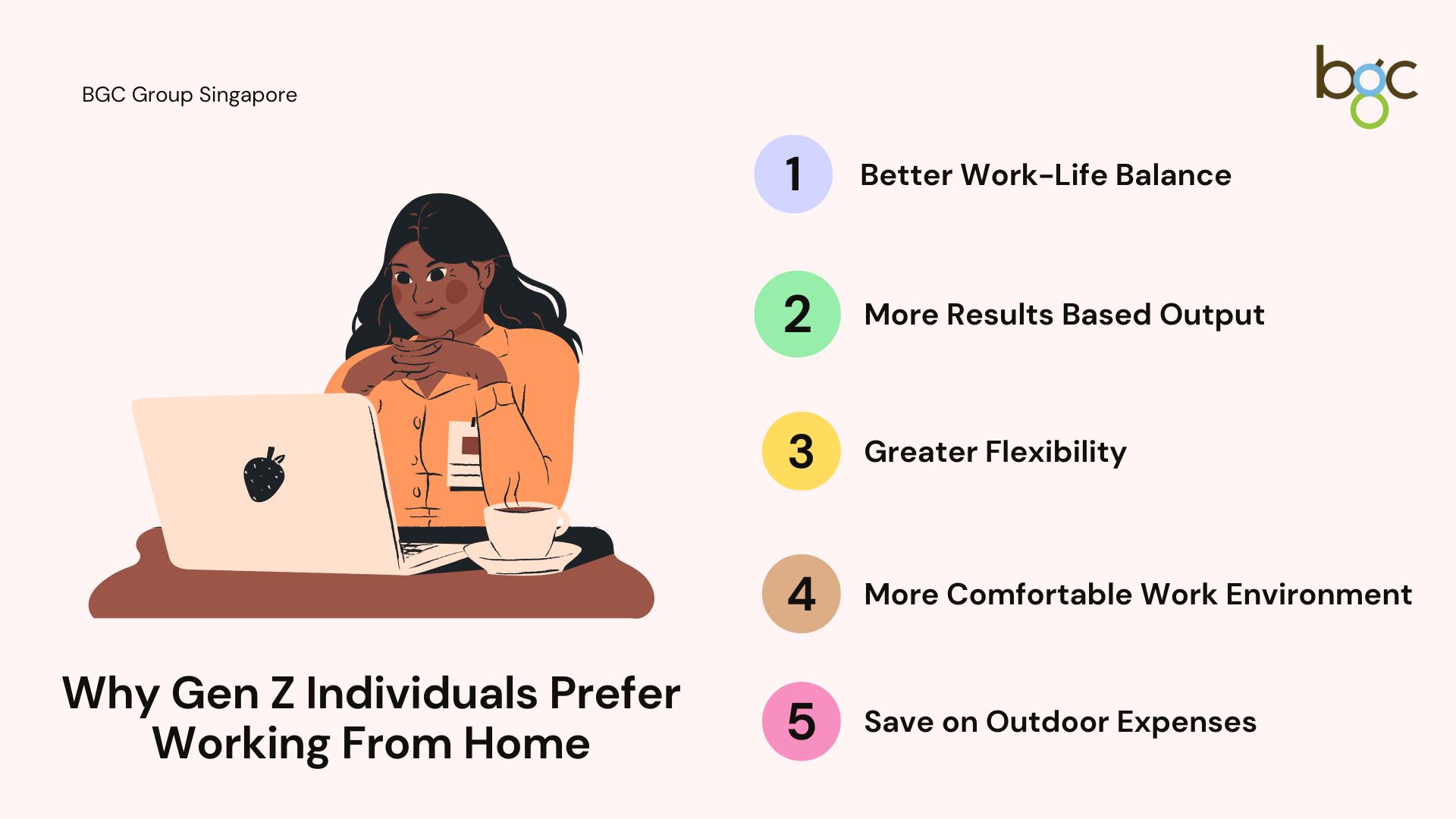After the long-lasting pandemic, Singapore is gradually returning to normal, with some companies returning to hiring in-office positions. Indeed shows that job postings containing remote or work from home terms have decreased to 7.4% in May 2022, a 25% difference compared to the previous quarter.
However, even with a gradual return to in-person or hybrid work modes, Indeed’s findings in a recent survey revealed that Singapore jobseekers still prefer to work remotely. Around 3.6% of Singapore searches on Indeed’s job portal are for remote work. Which equals to one in every 28 searches on the Indeed website. Another study revealed that 60% of young employees would rather resign than work onsite full-time.
Which should come as no surprise as the pandemic has lasted more than two years. Resulting in more than two years of work from home. But what other reasons do Gen Z have when it comes to their preference for working from home? In this article, we will share 5 reasons why Gen Z employees in Singapore prefer to work remotely.

1. Achieve Work Life Balance
In a survey by Qualtrics, employees said the main reason why they are considering switching jobs by next year is that they want an improved work-life balance (54%). This reflects that employees are increasingly aware of their mental health and prioritizing their needs. When they are able to work from home, they have more free time as they can save time on commuting. In 2020, the average commute time in Singapore amounted to about 46 minutes. This means that 1.5 hours of travel time can be saved each day for each person. This extra time can be used for de-stressing activities like exercise, meeting up with friends, or even just taking a nap.
When working from home, employees can spend more time focusing on themselves and developing new interests that benefit their mental health. Interests like yoga, painting, or a musical instrument that requires constant practice can be developed. Employees can also spend the extra time with their friends and family, building a better connection in the long haul. This is especially valuable for those workers with young children. Working from home means more time bonding with their family that could not be achieved previously.
2. Work is More Results Based
In the office, employees are required to sit out their full working hours even if they have finished all their work. This results in employees spending extra time at work trying to look busy. This does not increase their productivity and it seems like work is more “for show” to supervisors.
However, when working from home, work productivity is no longer measured by how long one spends at their desk. Employees can do their work as they like and when they finish they can either see if there are any other tasks they can work on or just end work for the day. There is no supervisor watching behind their shoulder to see if they spend the full eight hours on their seat. Work is more results based and employees are solely evaluated by the work they produce instead of the time spent on it. Which is a more healthy work culture.
3. Greater Flexibility in Day-to-day Schedule
When working from home, employees can take charge and decide on their own work schedule. Some people may not be a morning person and simply cannot work in the morning. They can then decide to change their work time to the afternoon or night, where they can take a slow morning relaxing. This is entirely up to their preference. They can also take gym breaks or send their children to and fro from school in between work as long as they complete work in time.
4. Work in a Better Environment
There may be many distractions and interruptions in the office that decreases work productivity. For example, noise in an open office, long conversations with chatty colleagues, or even never-ending meetings and coffee breaks. These cause interruptions to work and difficulty in concentration, which deteriorates work efficiency and quality.
When working from home, one can set up their own environment according to their comfort to minimise distractions. They can set up their work area with their own personal chair and most comfortable lighting according to their preference. This private space means that they won’t be distracted by others and also do not have to worry about distracting other coworkers. An additional bonus is that employees can dress according to their comfort when working at home (even pyjamas if no meetings are needed). If employees want a change in environment, they could also move their workspace to a nearby cafe or library. There are many cafes with free and stable wifi with a quiet environment for work. It is all up to you to decide where you want to work.
5. Lower Monetary Costs Outside of the House
Costs of going to work in the office include commuting costs, a daily cup of store bought coffee, lunch at a restaurant, and a teatime snack. Sometimes, even dinner is bought outside. This surely adds up to a significant portion of your salary. When working from home, people tend to shop and cook by themselves, and drink coffee made at home. This lowers costs significantly. According to a 2021 survey by Bankrate, 57% of workers said remote work had a positive impact on their finances.
Besides food, employees with children can also save on expensive childcare. As they are now working from home, they can work with flexibility and are able to take their children to school, or even just make lunch for them at home. This is a benefit that most working class parents want to have.


